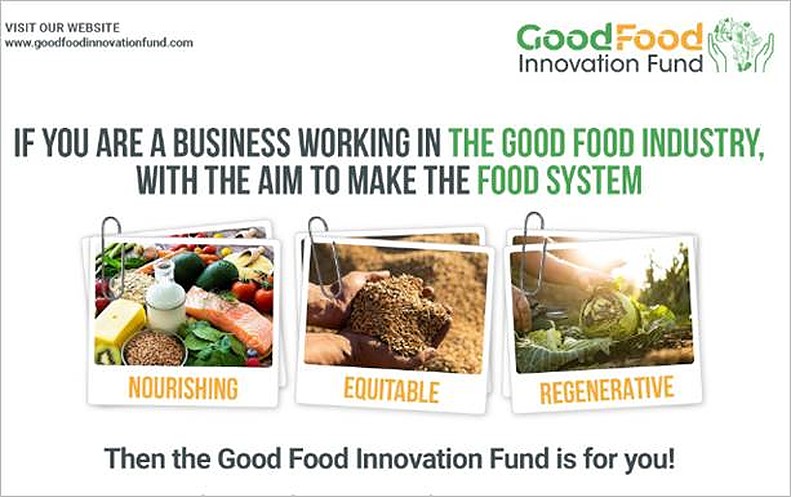Good Food Innovation Fund Awards its 1st Cohort of Enterprises with over USD 1 Million to Support Nutritious and Affordable Food Across Sub Saharan Africa

Kigali, Rwanda, 7th Sep– The Good Food Innovation Fund (GFIF) has selected seven enterprises that are revolutionizing the availability and affordability of ‘good food’ in low-income communities in Kenya and Rwanda to receive funding and technical assistance to expand their operations. GFIF received 144 applications for this initial call for applications. Selection focused on small and medium enterprises (SMEs) with a special interest in promoting nutritious, regenerative, and equitably produced and distributed food—called “good food”—through schools and other institutional feeding programs. The seven SMEs will receive funding between USD 100,000 to 200,000 each, for a total of over USD 1 million.
Launched in 2021 with a USD 5 million grant from The Rockefeller Foundation, the Good Food Innovation Fund supports SMEs to expand access to nutritious and affordable food across sub-Saharan Africa while mitigating barriers such as high prices, consumer preferences, and unfavorable policies. The fund is managed by Intellecap Advisory Services.
SMEs selected to receive support in this initial round of support include:
These SMEs have been selected at a time of growing food insecurity globally. In 2021, more than 282 million Africans were undernourished, and the ongoing Covid-19 pandemic, climate change, and the Russia-Ukraine conflict have fueled further food price hikes—making access to affordable food even more difficult and threatening to send millions more into hunger.
“African businesses have a vital role to play in making sure that people, especially in low-income communities, have to access nutritious and affordable food,” said Mehrdad Ehsani, Vice President at The Rockefeller Foundation. “Supporting them will improve efficiencies along the food supply chain, reduce the cost of production, increase their competitiveness, and enable them to reach to low-income populations with nutritious food.”
One of the recipients, Agriface, will work with its distributors to provide fortified wholegrain maize flour to school children through the government’s school feeding program in Rwanda. It is also promoting equitable production and distribution systems by sourcing directly from farmers while paying fair prices for their produce.
Smart Logistics Solutions, another award recipient, is a Kenyan enterprise leading in production of nutrient dense foods that are beans based. They have developed a variety of bean-based products such as noodles, and fortified porridges using beans fortified with iron and zinc. Designing such products ensure that the children and youth can enjoy foods that are attractive to them but are more nutritious and affordable. With the additional financing they will be able to reach an additional 20 schools and 25 hospitals.
“The Fund is a novel way for SMEs to improve access to affordable and nutritious foods. We are excited to work with these selected enterprises,” said Karnika Yadav, Partner & Director – Africa, Intellecap. “We are eager to help discover and transform their innovative ideas into real benefits for health and nutrition of low-income communities across Africa, while strengthening the ecosystem for good food.”
The Good Food Innovation Fund will launch its second innovation call in October 2022. This call will target innovations in vertically integrated value chains with distribution and retail, harvest and post-harvest, processing, distribution, and logistics, and will cover the additional countries of Ghana and Benin.
For more information about the GFIF, visit: Good Food Innovation Fund




